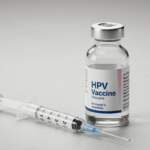
Ghana confirmed 22 new cases of Mpox between August 23 and 25, 2025, raising the cumulative total to 446 infections since the current outbreak began in early 2024. This uptick marks one of the higher weekly case counts the country has recorded, prompting health authorities to accelerate preventive measures and community engagement strategies.
According to the Ghana Health Service’s (GHS) situation report, the death toll has held steady at one, and no new hospital admissions
were recorded over the three-day period. While the persistence of a single fatality underscores the potential severity of Mpox, the absence of fresh admissions provides a cautiously optimistic signal that early detection and home-based care protocols are containing the worst outcomes.
A cornerstone of Ghana’s intensified response is the procurement of over 33,000 Mpox vaccine doses, secured through partnerships with international donors and the GHS’s procurement division. These vaccines are earmarked for groups deemed at highest risk—healthcare workers, laboratory personnel, and close contacts of confirmed cases—with distribution channels now being finalized at national, regional, and district levels.
Mpox has now touched nearly every corner of the country: 15 of Ghana’s 16 regions have reported at least one confirmed case, illustrating how the virus has breached both urban centers and remote communities alike. Health officials warn that this broad geographic dispersal could accelerate transmission if vigilance lapses, especially in areas with limited access to medical facilities or public-health information campaigns.
Experts stress that vaccination must complement, not replace, core containment measures. The GHS continues to conduct contact tracing, isolate active cases, and deploy Rapid Response Teams to emerging hotspots. In parallel, community outreach initiatives are reinforcing key messages on personal hygiene, safe caregiving practices, and the importance of seeking medical attention at the first sign of symptoms.
Mpox spreads primarily through prolonged close contact with an infected individual, whether via direct skin-to-skin exposure, respiratory droplets during extended face-to-face interaction, or contact with contaminated materials such as bedding or clothing. The GHS advises the public to wash hands frequently, avoid sharing personal items, and promptly present to health facilities if they develop headaches, fever, a characteristic vesicular rash, or body pains.
Behind these technical directives lies a concerted effort to destigmatize Mpox and encourage timely reporting. Community leaders, traditional healers, and faith-based organizations are being enlisted to dispel myths and support affected families. By fostering an environment where symptoms are addressed without embarrassment or fear, Ghana aims to shorten the window between symptom onset and medical intervention—a critical factor in curbing onward spread.
Looking ahead, the arrival and administration of the 33,000+ vaccine doses will be a turning point in Ghana’s epidemic control strategy. As Dr. Selorm Kutsoati, Acting Programmes Manager for Immunization at the GHS, noted in earlier briefings, “The vaccines will complement our existing containment tools and fortify the country’s defenses against further flare-ups.” With robust surveillance, community engagement, and now an age-targeted immunization campaign on the horizon, Ghana is striving to translate scientific progress into lasting public-health security.
Source: 22 new Mpox cases recorded; total cases now 446 | 3News



